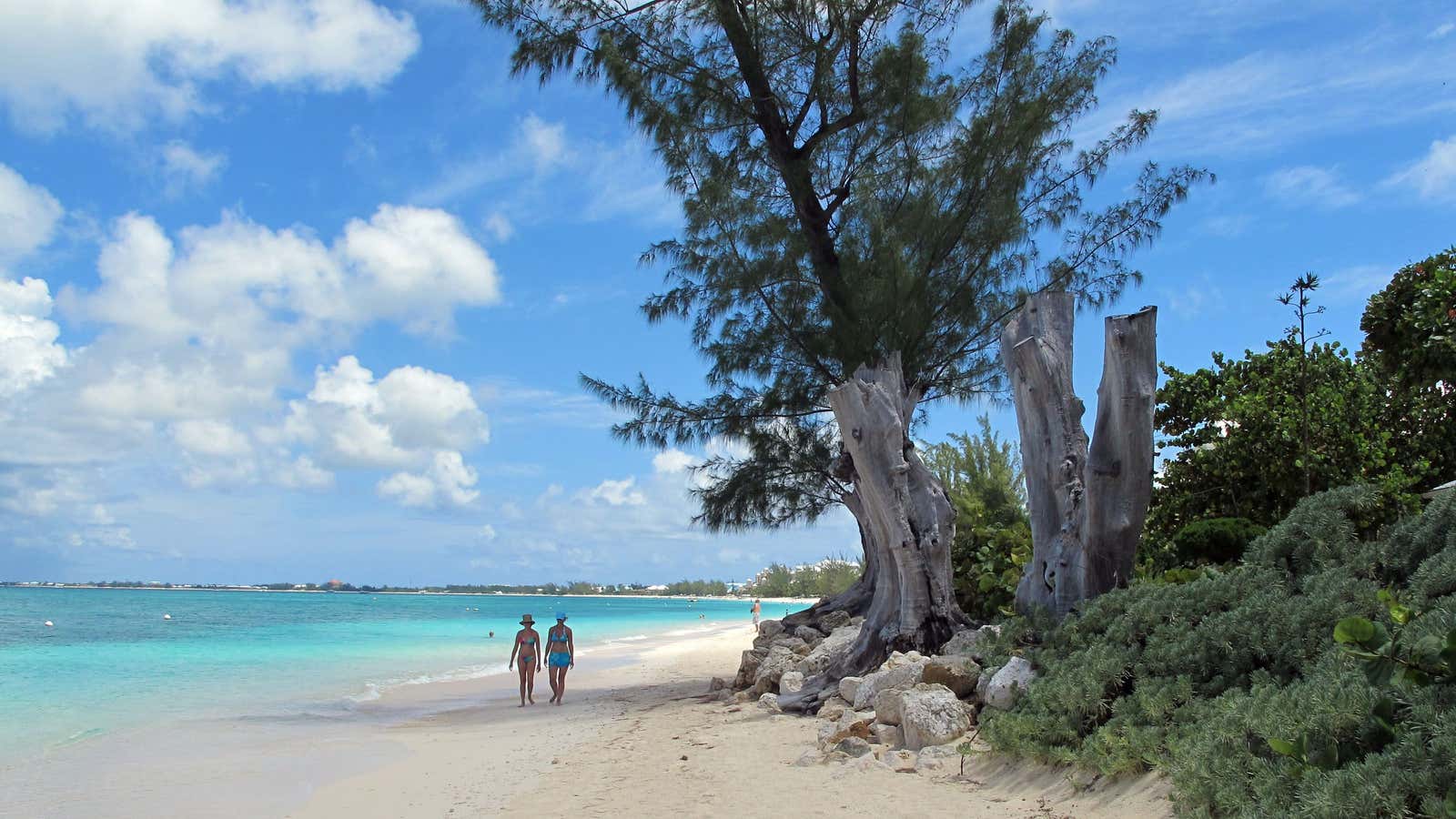Weeks after Brexit, the EU appeared to fire a warning shot towards the UK, adding the Cayman Islands—a British Overseas Territory—to its tax haven blacklist this week.
The list, which threatens those included with greater financial scrutiny and a potential cut in EU aid, has received intense criticism in the past for naming little-known jurisdictions like Vanuatu, while declining to list the likes of Switzerland and the British Virgin Islands.
The latest iteration of the EU’s blacklist also neglected to name and shame the largest offender of them all: the United States. The US competes with, and often outpaces, all the world’s most permissive tax havens in terms of corporate secrecy, lack of compliance, and pure financial heft.
America has become “effectively the biggest tax haven in the world,” a managing director at European banking giant Rothschild wrote in a 2016 draft presentation, according to Bloomberg. A massive 2012 academic study found that it’s easier for criminals to form an anonymous shell company in the US than anywhere except Kenya.
In recent years, tax-dodging regimes like Switzerland have opened up a crack in their secrecy by signing up for international schemes through which countries can share information on each other’s taxpayers. The US forces other countries to give it that data, but only reciprocates with a handful of allies. As a result, global elites have been pulling their money in droves out of Switzerland and Cayman, redirecting it to trusts in US states like Nevada and South Dakota. Kleptocrats like the son of Equatorial Guinea’s dictator, a former Ukrainian prime minister jailed for corruption, and the gun-running “merchant of death” Viktor Bout have all hidden their money using US shell companies.
By finally including Cayman and Panama, the EU’s blacklist has gained some legitimacy. But its failure to include the US and to tackle its own tax havens—like Malta, Cyprus, and Luxembourg—means it remains “politically biased,” according to the Tax Justice Network, a non-profit campaigning for tax reform.
“The EU must be willing to confront secrecy wherever it originates,” the group said in a statement.
